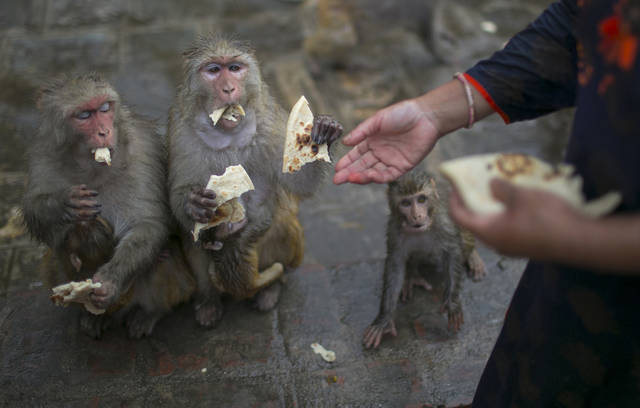Kathmandu, Jul 25 (AP/UNB) — In the forests of Nepal’s capital Kathmandu near the revered Hindu temple of Pahsupatinath, some 300 monkeys eagerly await their pieces of roti, or flat bread.
For the past four years, Saraswati Dangol has been bringing the bread every day to feed the monkeys. She buys some 10 kilograms (22 pounds) of flour and spends hours cooking the roti, traveling to the forest temple and feeding them.
Thousands of monkeys live around the temple and about 300 of them come for Dongol’s roti.
As soon as they see her with her white sack, they gather around her, some patiently waiting for their turn while others less patiently snatching the bread from her hands.
“It used to be that the monkeys were able to feed on the fruits from the trees but now the forests are thin and hardly any fruit,” she said.
“They are going hungry and some of them even go to nearby houses to steal food,” she said, adding that the monkeys are injured by people whose homes they try to enter.
Lately the monkeys from Pashupati have been wandering farther away from the temple and forest area in search of food.
Many of Dangol’s regulars are elderly, or mother or baby monkeys that are unable to fight for their share of food in the wild.
Dangol rarely misses a day at the temple, but when she does, she struggles not to worry about the monkeys.
“When I miss a single day, I feel like I have not fed my kids and I become depressed,” she said.
The temple is revered by Hindus and draws pilgrims come from all over the world.
The monkeys are a key feature of the temple area. Visitors sometimes feed them, but the monkeys more often help themselves to the fruit and sweets left as temple offerings for the Hindu god Shiva.




